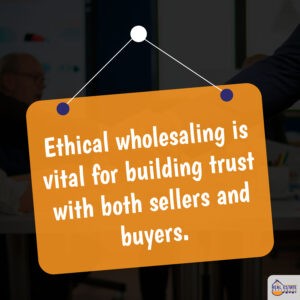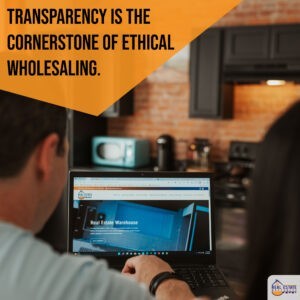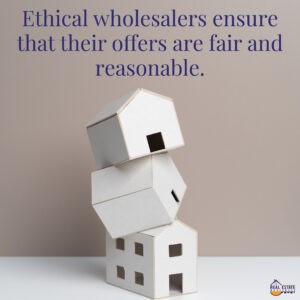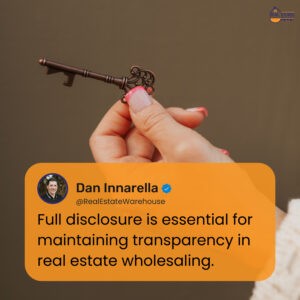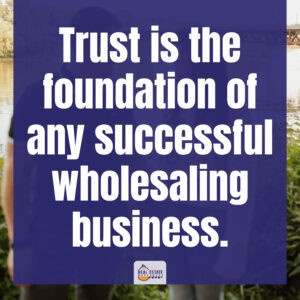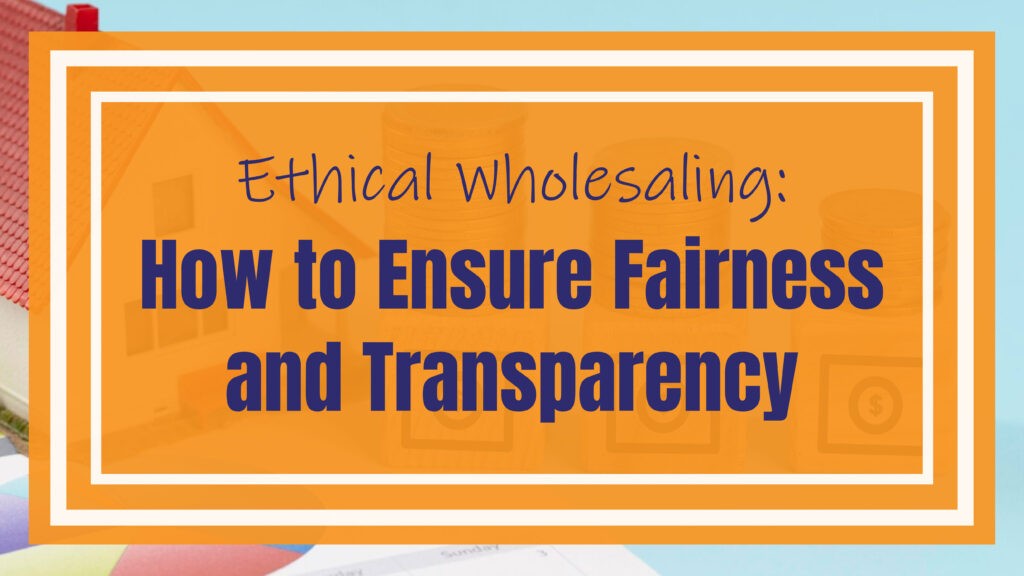Real estate wholesaling can be an excellent way for investors to enter the real estate market with relatively low risk. This method involves contracting a home with a seller, marketing the property, and then assigning the contract to another buyer for a profit. However, as with any industry, ethical practices are crucial to maintaining trust and integrity. This article aims to provide guidelines for ensuring fairness and transparency in real estate wholesaling.
Understanding Real Estate Wholesaling
Real estate wholesaling is a strategy where the wholesaler acts as an intermediary between sellers and buyers. The wholesaler finds a property, secures it under contract, and then sells (assigns) the contract rights to an end buyer for a profit. This process allows the wholesaler to make money (profit) without actually owning the property. Understanding this fundamental aspect of wholesaling is key to practicing it ethically.
The Importance of Ethics in Wholesaling
Ethical wholesaling is vital for building trust with both sellers and buyers. Ethical practices help establish a positive reputation, which is crucial for long-term success in the real estate industry. By being fair and transparent, wholesalers can avoid legal and reputational risks that could arise from unethical behavior.
Key Principles of Ethical Wholesaling
Transparency is the cornerstone of ethical wholesaling. Wholesalers should always be upfront about their role and clearly communicate the process to all parties involved. This includes explaining how the wholesaling process works, what their role is, and what the potential outcomes are for both the seller and the buyer.
Fairness involves providing offers that reflect the true market value of the property. It is crucial to avoid taking advantage of distressed sellers by offering significantly lower prices than the property is worth. Ethical wholesalers ensure that their offers are fair and reasonable, taking into account the condition and market value of the property.
Ensuring Fair Practices
One of the most important aspects of ethical wholesaling is providing an honest and accurate valuation of the property. This means conducting a thorough property assessment and being transparent with the seller about the property’s value. By doing so, wholesalers can build trust and avoid accusations of exploitation.
Ethical negotiation techniques involve respecting the seller’s situation and needs. Wholesalers should avoid high-pressure tactics and instead focus on creating win-win situations. This means listening to the seller’s concerns, offering fair prices, and being willing to negotiate terms that benefit both parties.
Maintaining Transparency
Full disclosure is essential for maintaining transparency in real estate wholesaling. Wholesalers should disclose their intentions, roles, and any fees associated with the transaction. This includes informing the seller that the wholesaler plans to assign the contract to another buyer and being clear about any assignment fees.
Open communication throughout the wholesaling process helps build trust and ensures that all parties are informed. Wholesalers should keep both sellers and buyers updated on the progress of the transaction, address any concerns or questions promptly, and provide regular status updates.
Building Trust and Relationships
Trust is the foundation of any successful wholesaling business. Wholesalers can build and maintain trust by being honest, transparent, and reliable. This involves following through on commitments, treating clients with respect, and consistently demonstrating integrity. Long-term relationships built on trust can lead to repeat business and referrals, which are essential for sustained success.
Legal Compliance and Continuous Education
Adhering to local, state, and federal laws is non-negotiable for ethical wholesalers. This includes obtaining the necessary licenses and following regulations specific to real estate wholesaling in the jurisdiction where the property is located. Additionally, wholesalers should commit to continuous education to stay updated on legal requirements and best practices. Consulting with real estate attorneys and other professionals can provide valuable guidance and ensure compliance.
We’re Here For You
Ethical wholesaling is not only about following the law but also about building a business based on trust, fairness, and transparency. By adhering to ethical practices, wholesalers can protect their reputations, foster long-term relationships, and contribute to a more trustworthy and sustainable real estate market. Remember, ethical practices are the foundation of long-term success in real estate wholesaling. Embrace them, and you’ll find that your business thrives as a result.
Happy investing,
Dan & Jenni Innarella
